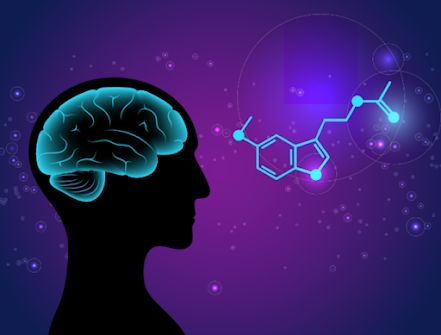What is Melatonin and Why Is It Important for Human Life?
Introduction: Have you ever heard of melatonin? It's a hormone that plays an important role in regulating our sleep-wake cycle. But melatonin does much more than that. In this blog post, we'll explore what melatonin is, how it works, and why it's so important for human life.
What is Melatonin? Melatonin is a hormone produced by the pineal gland in the brain. It's commonly known as the "sleep hormone" because it regulates our sleep-wake cycle. Melatonin is released in response to darkness and suppressed by light. That's why it's easier to fall asleep in a dark room and harder in a brightly lit room.
But melatonin does more than just regulate our sleep. It also plays a role in many other important physiological functions, such as:
Antioxidant: Melatonin acts as an antioxidant, protecting our cells from oxidative stress and free radicals that can cause cellular damage.
Immune system: Melatonin helps regulate our immune system, which defends us against pathogens such as viruses and bacteria.
Blood pressure: Melatonin can help regulate blood pressure, which is important for maintaining cardiovascular health.
Mood: Melatonin is involved in regulating mood and may help alleviate symptoms of depression and anxiety.
Why is Melatonin Important for Human Life?
Melatonin is important for many aspects of human life. Here are some reasons why:
Sleep: Melatonin is critical for regulating our sleep-wake cycle. Without enough melatonin, we may have trouble falling asleep, staying asleep, or waking up feeling rested.
Health: Melatonin's antioxidant and immune-regulating properties can help protect us against a variety of health problems, including cancer, heart disease, and neurological disorders.
Aging: Melatonin levels decline as we age, which may contribute to the aging process. Some research suggests that melatonin supplements may help slow down age-related decline.
Mental Health: Melatonin's role in regulating mood may make it a promising treatment for mood disorders like depression and anxiety.
Human body development and growth is a complex process that involves various stages of cell division, differentiation, and specialization. Here is a brief overview of how the human body is generated:
Conception: The process of human body generation starts with conception. When a sperm fertilizes an egg, it creates a single cell called a zygote. This zygote contains all the genetic information necessary to build a human body.
Cell Division: The zygote undergoes a series of cell divisions, called mitosis, which creates a cluster of cells called a blastocyst. The blastocyst then implants itself into the uterine wall, where it starts to form the placenta and the embryo.
Differentiation: During the next few weeks, the cells in the embryo start to differentiate into three layers called the endoderm, mesoderm, and ectoderm. Each layer will give rise to different tissues and organs in the body.
Organ Formation: As the embryo continues to develop, the organs and systems of the body start to take shape. The heart starts to beat, the brain and spinal cord start to form, and the limbs start to develop.
Fetal Development: During the fetal stage, which starts around the ninth week of pregnancy, the body grows rapidly and the organs mature. The fetus starts to move and respond to stimuli from the outside world.
Birth: After around nine months of gestation, the fetus is ready to be born. The mother's body goes through labor, which involves contractions that push the baby through the birth canal. The baby takes its first breath of air and starts to adapt to life outside the womb.
Growth and Development: After birth, the human body continues to grow and develop. The brain continues to develop throughout childhood and adolescence, and the body goes through puberty and eventually reaches adulthood.
In summary, the human body is generated through a complex process of cell division, differentiation, and organ formation that takes place over several months of pregnancy. After birth, the body continues to grow and develop throughout life.
Melatonin is a hormone that is naturally produced by the pineal gland in the brain. However, it can also be obtained from dietary sources and supplements. Here are some common sources of melatonin:
Foods: Melatonin is found in small amounts in certain foods, such as tart cherries, walnuts, almonds, tomatoes, grapes, and rice.
Beverages: Some beverages, such as tart cherry juice, contain higher levels of melatonin than other drinks.
Supplements: Melatonin supplements are widely available over-the-counter in many countries. They come in various forms, such as tablets, capsules, gummies, and liquid.
Prescription medications: In some countries, melatonin is available as a prescription medication for the treatment of sleep disorders.
Light therapy: Exposure to bright light in the morning can help regulate the body's natural production of melatonin, which can improve sleep and mood.
It's important to note that the quality and effectiveness of melatonin supplements can vary widely, and they may not be appropriate for everyone. It's always a good idea to talk to a healthcare provider before taking any new supplements or medications, especially if you have any underlying health conditions or are taking other medications.
Conclusion: Melatonin is a hormone that plays a vital role in regulating our sleep-wake cycle and many other aspects of human life. It's important for our health, aging, and mental well-being. If you're having trouble sleeping or experiencing other health problems, it's worth talking to your doctor about whether melatonin supplements could help.



No comments
Post a Comment